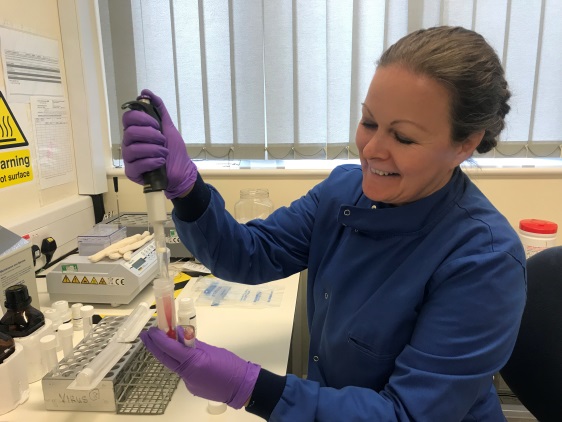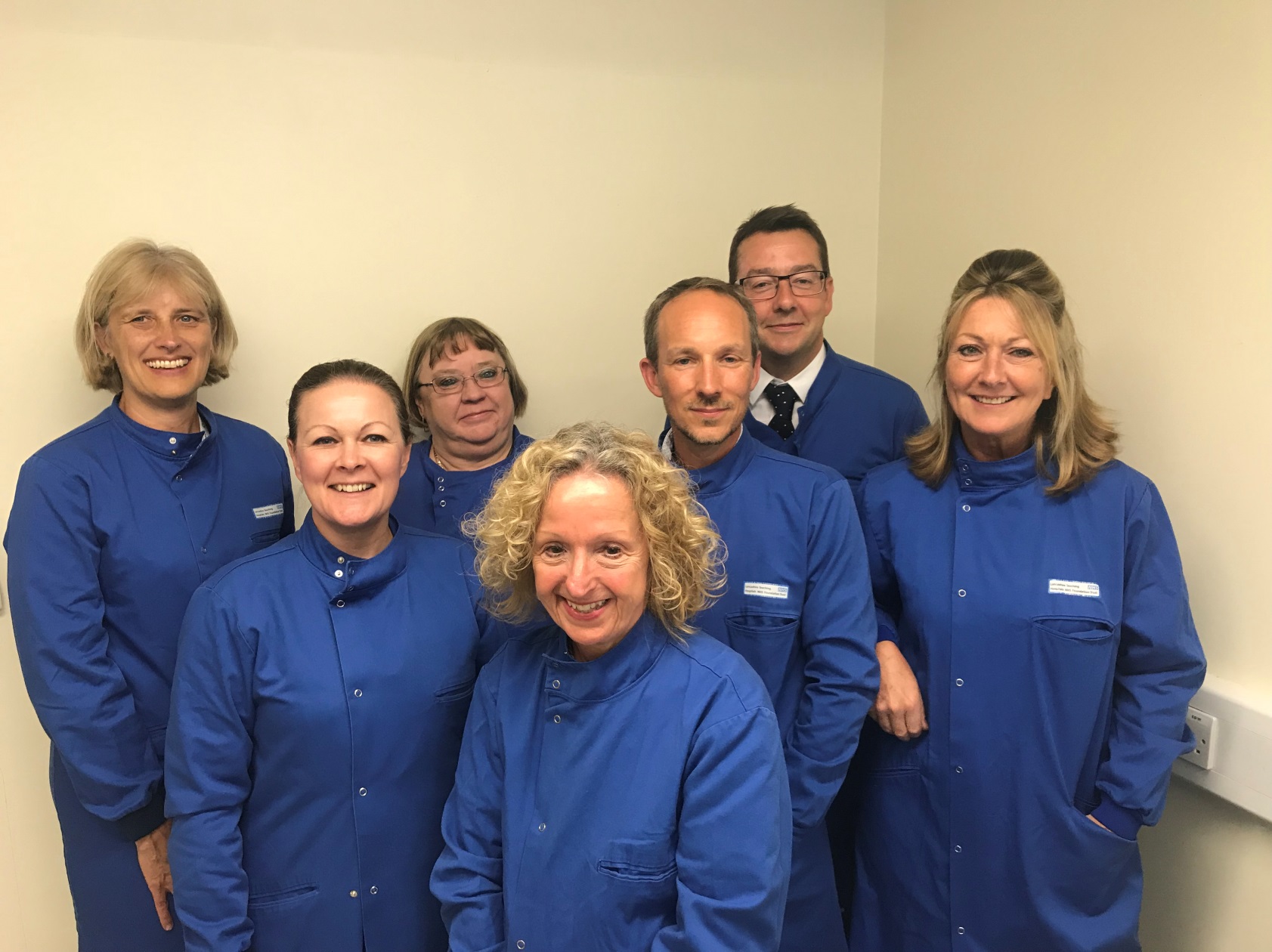Lancashire Teaching Hospitals NHS Foundation Trust has re-launched an initiative to celebrate and share the achievements of staff across the hospitals.
Fab Feedback Fridays involve the executive team visiting a different team around the hospitals each fortnight to take a look at what the team have achieved and implemented, to celebrate our staff and what they are doing on a daily basis. The sessions have returned due to popular demand as feedback within our recent staff survey showed that teams liked having this method of sharing all of the great stuff that they are doing.
Teams volunteer to showcase their work through Fab Feedback Fridays. Last week’s session gave the genomic medicine team at Royal Preston Hospital a chance to showcase their fab work.
The Genomics team, led by Associate Clinical Director for Pathology Professor Anthony Rowbottom, is taking part in a ground breaking project that will revolutionise medicine in the future. The 100K Genomes Project will sequence 100,000 genomes (all the information within our DNA that makes us who we are) from around 70,000 NHS patients who have rare diseases or cancer, and their families to gain a better understanding of causes of the conditions.
Lancashire Teaching Hospitals is part of the North West Coast Genomics Medicine Centre which is leading the use of genomics to benefit patients and transform patient care. Genomic medicine analyses an individual’s DNA to predict, prevent, and more accurately diagnose disease through personalised treatment, specifically for rare diseases and forms of cancer.
Many patients with rare diseases are unwell but don’t have an accurate diagnosis - sequencing the genome will identify their condition, so they can be treated effectively. Sequencing the genome will develop much better understanding of disease and how it affects the body, which will enable more effective treatment as well as providing valuable information for the development of new medicines and therapies. Sequencing the genome is the very foundation of personalising treatment in the future and is a real game changer for the NHS and one of the most important medical advances of the past 70 years.
Lancashire Teaching Hospitals are one of just 13 Genomic Medicine Centres in the UK, and have been recruiting patients to collect their genetic material to sequence the genome.
Deborah Lakeland, Specialist Biomedical Scientist at Lancashire Teaching Hospitals said, “Genome sequencing could completely change how we diagnose and treat health conditions in the future. By understanding our genes, and how each individual interacts with different medicines, diagnosis could be quicker and more accurate, and treatment plans tailored for each individual, recognising we each respond to drugs in different ways.”
“We’re also just starting a clinical trial now in partnership with Blackpool Victoria Hospital, the first of its kind in the NHS, to tailor medicines for cardiology patients. Using genotyping we can identify those patients who will metabolise clot-inhibiting drugs well, and those who don’t, and this will inform how they are treated to minimise their risk of adverse cardiovascular events. Historically this was a one-size fits all approach and therefore this is more effective and a better experience for patients.”
The project has been collecting and analysing genetic material from women with gynaecological cancer. This valuable material and data is now being collated and analysed as part of the next phase of the research programme, and the team is now recruiting patients with other cancers.
Marianne Hare, Research Nurse at Lancashire Teaching Hospitals, said, “One of the key benefits of genomic medicine is that it will allow you to identify whether conditions are hereditary or have developed for other reasons.”
“Patients and their families are approached to take part, and must firstly go through an extensive consent process because their genetic material and data could be used in different ways for a long time in the future. Genetic material is collected, and processed by our Molecular Pathology team before being sent for analysis.”
Karen Partington, Chief Executive at Lancashire Teaching Hospitals, said: “It is a real testament to both our research and biomedical science expertise that we have been successful in our bid to be one of just 13 centres in the country taking part in this pioneering project. This is one of those rare, exciting projects that will benefit local patients immediately, as well as innovate on a world-wide level.”
“As the cancer centre for Lancashire and South Cumbria, as well as a leading research centre, it is really important that we are involved in such pioneering programmes. This will enable us to bring emerging treatment and approaches to local patients now, as well as break new ground in healthcare that will benefit future generations.”


